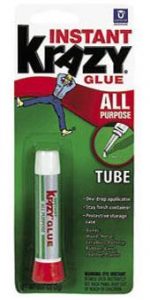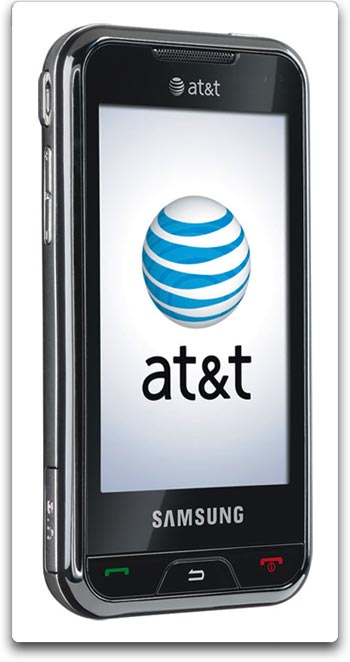 Top Class Action Lawsuits
Top Class Action Lawsuits
Krazy Glue maker hit with Consumer Fraud Class Action—but will it stick? Elmer’s Products is facing a consumer fraud lawsuit alleging the glue packaging contains slack fill, and that Elmer’s is profiting by way of the packaging, by misleading consumers.
According to the Krazy Glue lawsuit, filed by plaintiff David Spacone, the large and opaque packaging for Krazy Glue misleads customers into thinking the package contains significantly more glue than it actually does. Specifically, the lawsuit states that the opaque container is more than five times larger than the “tiny tube of glue” that contains the product.
“This packaging prevents the consumer from directly seeing or handling the product and leads the reasonable consumer to believe that the package contains significantly more product than it actually does,” the complaint states.
Spacone claims that he bought Krazy Glue at a True Value hardware store in Los Angeles, believing he was buying the amount represented by the “Stay Fresh” container, instead of the smaller tube inside of it. However, because the container is opaque, consumers cannot see how much product they are actually buying, the complaint states.
“If plaintiff had known at the time of purchase the actual size of the tube of product contained in the packaging, he would not have purchased the Krazy Glue or paid less for it,” the lawsuit states.
Here’s an interesting bit of info: The allegation that the container is misleading is based on the amount of nonfunctional slack fill, which is defined in California state law as “the empty space in a package that is filled to substantially less than its capacity,” according to the complaint.
The size and slack fill of the container do not fall within any safe harbor protections provided under state business law, according to the lawsuit, which goes on to state that the container does not protect its contents or have any significant value. Further, the larger container does not have any labeling information that can’t also be found on the tube.
“The use of non-functional slack-fill allows [Elmer’s] to lower their costs by duping customers into thinking they are getting a better bargain than they actually receive,” the complaint says. “As a result, [Elmer’s] has realized sizable profits.
Three classes are proposed, namely a nationwide class of those who purchased a .07-ounce tube of Krazy Glue in a .37-ounce outer container, a California sub-class and a Consumer Legal Remedies Act California subclass.
The complaint alleges violations of California’s Consumer Legal Remedies Act and two violations of unfair competition law. The case is David Spacone v. Elmer’s Products Inc. et al., Case Number BC648907 in the Superior Court of the state of California for the County of Los Angeles.
Top Settlements
Defective BP Solar Panels? No—they can’t blame it on the weather. A $67 million settlement is moving ahead potentially ending a class action lawsuit alleging that solar panels manufactured and sold by BP Solar and Home Depot are defective.
According to the lawsuit, the BP solar panels at issue were substantially certain to fail within their warranted lives due to an inherent defect in the junction box, the small casing on the back of the panel where soldered output cable connections are housed.
Specifically, the BP solar panels at issue were manufactured between 1999 and 2007 with an S-type junction box (“Class Panels”). The lawsuit claims these panels are defective and prone to junction box failures which could cause burn marks at the junction box, shattered glass, and a potential fire hazard. Oh dear. No power but potentially one big bang?
The panels were sold through various distributors and retailers, including but not limited to Solar Depot and Home Depot.
Here’s the skinny getting some cash: The settlement includes anyone in the United States who: (1) purchased certain BP solar panels for installation on a property, or (2) currently owns a property on which these panels are installed and, in either case, who still owns some or all of the BP solar panels.
Settlement Class Members with certain higher failure rate models, or with high failure rates in their arrays, will be eligible for complete replacement of their solar panels. Others will receive replacement of failed panels and a new inverter with advanced safety technology. Owners of large, non-residential systems will be entitled to a mediated commercial negotiation with BP, with extended opt-out rights.
Lowe’s Installers see Settlement…This week’s employment lawsuit is, in fact, a proposed settlement—to the tune of $2.85 million. If approved, it will resolve allegations brought against Lowe’s Home Centers LLC by installation workers who claim they were deliberately misclassified as independent contracts rather than employees. Heard this one before?
Lead plaintiff Thomas Mittl filed the lawsuit in August 2015 claiming that Lowes classified installers and installation companies providing services to Lowe’s customers as independent contractors rather than employees. This, the suit states, is in violation of the New Jersey Construction Industry Independent Contractor Act and common law unjust enrichment.
The result of the alleged misclassification of “independent contractor” was that it prevented the installers from receiving benefits including liability insurance coverage, workers compensation, temporary disability and health insurance. Further, they were barred them from eligibility for Social Security and Medicare, according to the complaint.
Mittl claimed in the lawsuit that he worked 80 hours a week on Lowe’s jobs, however, he didn’t receive benefits and was required to pay self-employment tax on all income earned from Lowe’s.
Mittl owns Toms River Automatic Door & Window Company in New Jersey. In his complaint, he argues that installation workers should be classified as employees because Lowe’s controlled the work they performed, including designating which customers the installers would work for, inspecting their work, requiring customers to pay Lowe’s directly for all work, submitting the installers to background checks, and requiring them to wear Lowe’s hats and shirts while working.
The Lowe’s settlement class consists of all installation workers or installation companies that signed a contract with Lowe’s to perform installation services on behalf of the company in New Jersey. If the settlement receives preliminary approval it will impact some 450 installation workers and companies, according to court papers.
The proposed settlement motion seeks class certification, appointment of Mitl as class representative and a $20,000 incentive award for Mitl as such a representative, among other things. The case is Thomas Mittl v. Lowe’s Home Centers LLC, case number 3:15-cv-06886 in the U.S. District Court for the District of New Jersey.
Ok – That’s a wrap for this week. See you at the bar!



 Top Class Actions
Top Class Actions